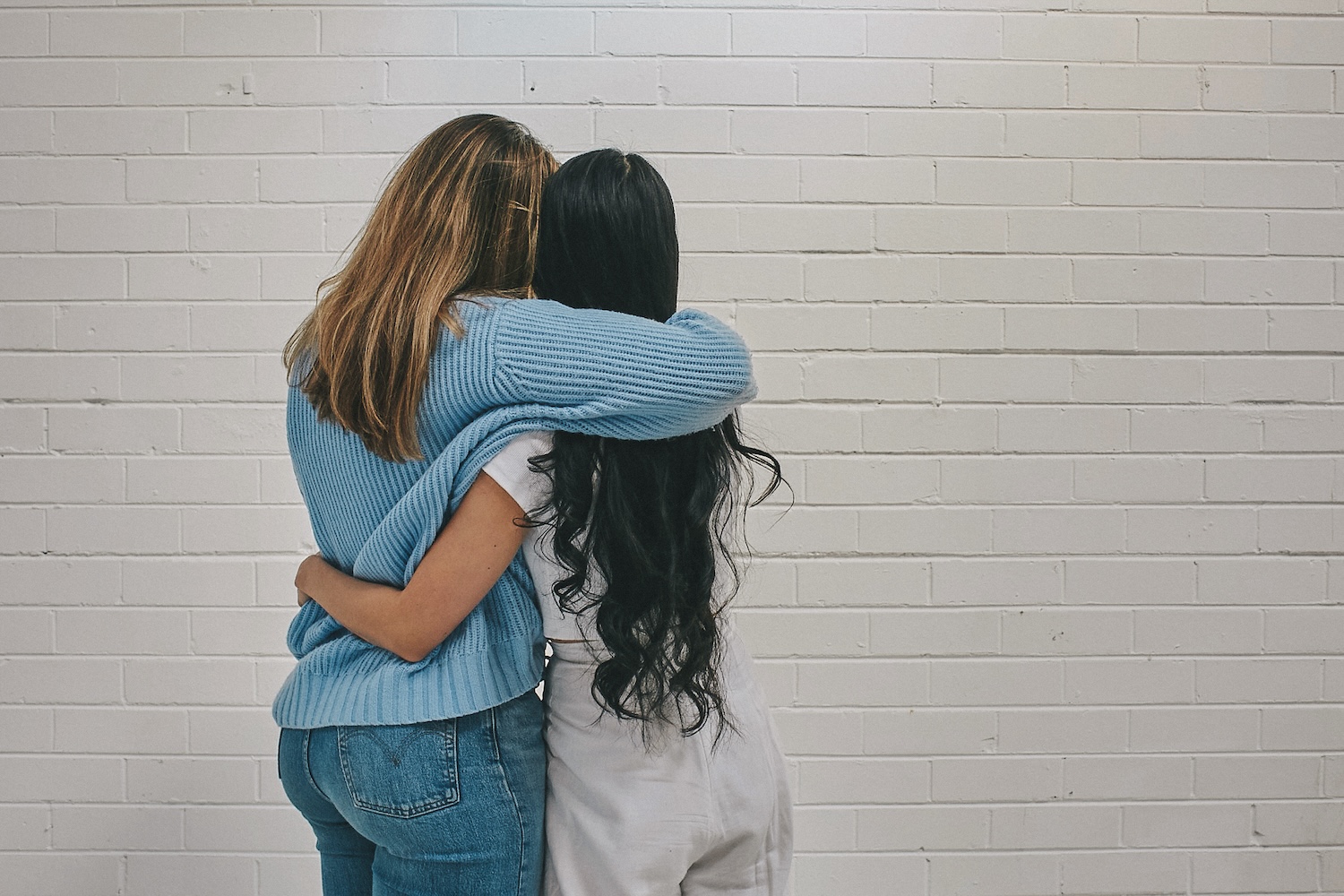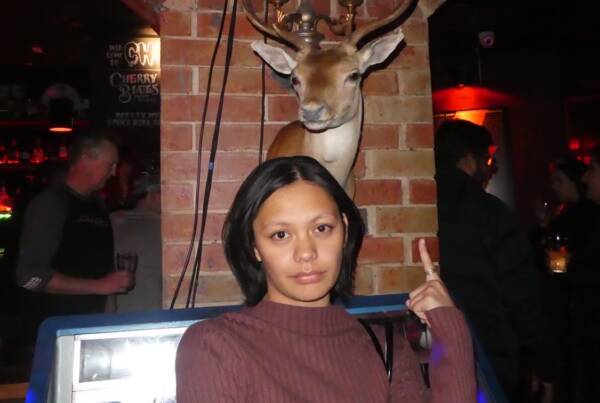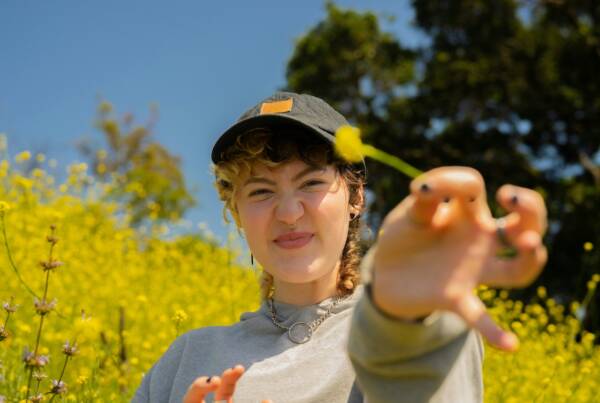Words by Sammy Gower // photo by Laura May Grogan
 My closest friendships with women have given me more belly laughs, early morning debriefs, and unconditional love than I ever thought possible. In these friendships, there’s no pressure to impress and no need to be anyone but yourself. They’re the people who know you through and through, have seen you ugly cry in your lowest of lows, and will send you 100 reels in a day just to cheer you up. That is the essence of female friendship, that pure and unfiltered support and comfort.
My closest friendships with women have given me more belly laughs, early morning debriefs, and unconditional love than I ever thought possible. In these friendships, there’s no pressure to impress and no need to be anyone but yourself. They’re the people who know you through and through, have seen you ugly cry in your lowest of lows, and will send you 100 reels in a day just to cheer you up. That is the essence of female friendship, that pure and unfiltered support and comfort.
But let’s not sugarcoat it, female friendships can be hard. Most of us have experienced the weird micro-aggressions, silent competition, or the sting of being left out. Sometimes it’s little things, like talking behind each other’s backs, comparing ourselves, or feeling like we have to compete for attention, especially in our younger and most formative years. It’s understandable to avoid the uncomfortable conversation that comes with addressing these issues, however, when these things aren’t talked about, they can simmer into resentment, and the issue can become ten times worse before you even realise it.
I’ve been there. I’ve had friendships that felt like home and like they would last forever, in which I have experienced an indescribable and genuine love. But I’ve also had friendships that have left me anxious, questioning if I was “enough” or if they even wanted the best for me. I held onto a very complicated friendship for years in hope that things would magically get better. But over time, small issues grew into huge patterns, and I always felt like I had to be on the lookout for another fallout. Eventually, I realised that keeping the peace in an effort to avoid drama was only keeping their peace, and that slapping a smile on my face instead of owning my feelings and standing up for myself was never going to help me heal and move on in the way I wanted to.
Letting go of this friendship was one of the hardest things I have ever done, but has been so amazing for my mental health. My standards for friendship have strengthened and my self-love has completely blossomed. By letting go, I finally felt free to form new friendships and do whatever brought me happiness. It took a while to accept that friendships are supposed to make you feel like you can do anything, to lift you up and not drag you down. Messy friendships are common, sure, but if you are constantly stressed, doubting yourself or looking over your shoulder at what your friend is going to do or say, something is not right. Remember, if your friendship is making you wonder whether you are smart, funny or likeable enough, if your wins are worth celebrating or if you are deserving of better, it is okay to let it go.
But this is easier said than done. Letting go of toxic friendships is freeing, but also extremely scary. There’s the fallout, the awkwardness, the “what if I’m alone?” spiral. And not only is it daunting, but it can also be sad. Getting to a point where you feel you need to end a friendship can be hard to accept, and hard to go through with. But once I let go of friendships that were not serving me, my world opened up. It is okay to end a friendship, whilst still having love for them and wishing them the best. I found I had more energy, felt more positive and confident, and suddenly, better things (and people) started coming into my life. It takes time, especially because forming friendships as an adult can be difficult, but you start to realise your worth, and you start attracting friends who see it too. This process is scary, but trust me when I say, it’s necessary for setting yourself free. And remember, it’s okay to feel a bit lost while you wait for your people to show up.
Why are female friendships so intense? Part of it is that we expect a lot from each other. We want support, loyalty and deep unconditional connection. When that’s violated, even in small ways, it feels huge. Female friendships have been proven to improve your mental health, lower stress, and even help you live longer. But because we care so much, the fallout can be brutal. We might be scared of conflict, so we avoid talking about what’s wrong, hoping it’ll just go away. Spoiler: it doesn’t. Sometimes, the healthiest thing you can do is have an uncomfortable conversation. Or, if that’s not possible, quietly step back. It’s not selfish to put yourself first. It’s necessary. If a friendship is making you feel bad more often than it makes you feel good, you’re allowed to walk away.
That doesn’t mean you’re giving up on sisterhood. In fact, it’s quite the opposite. By letting go of what’s toxic, you make space for the friendships that support you and help you grow. You deserve friends who cheer you on, who show up, and make you feel safe and loved. And yes, sometimes it takes a bit of trial and error, and a lot of courage, to venture into the sea of fish and find your people, so be patient and don’t be discouraged. We all have our people.
If you’re struggling with a friendship, or feeling alone in the messiness, you’re not weird or broken. Female friendships are complicated for everyone. But they’re also worth fighting for, just not at the expense of your own happiness. Prioritise your mental health, set boundaries, and remember it’s OKAY to choose yourself. The right friends will celebrate that, not punish you for it. And when you find your girls, hold them close.






